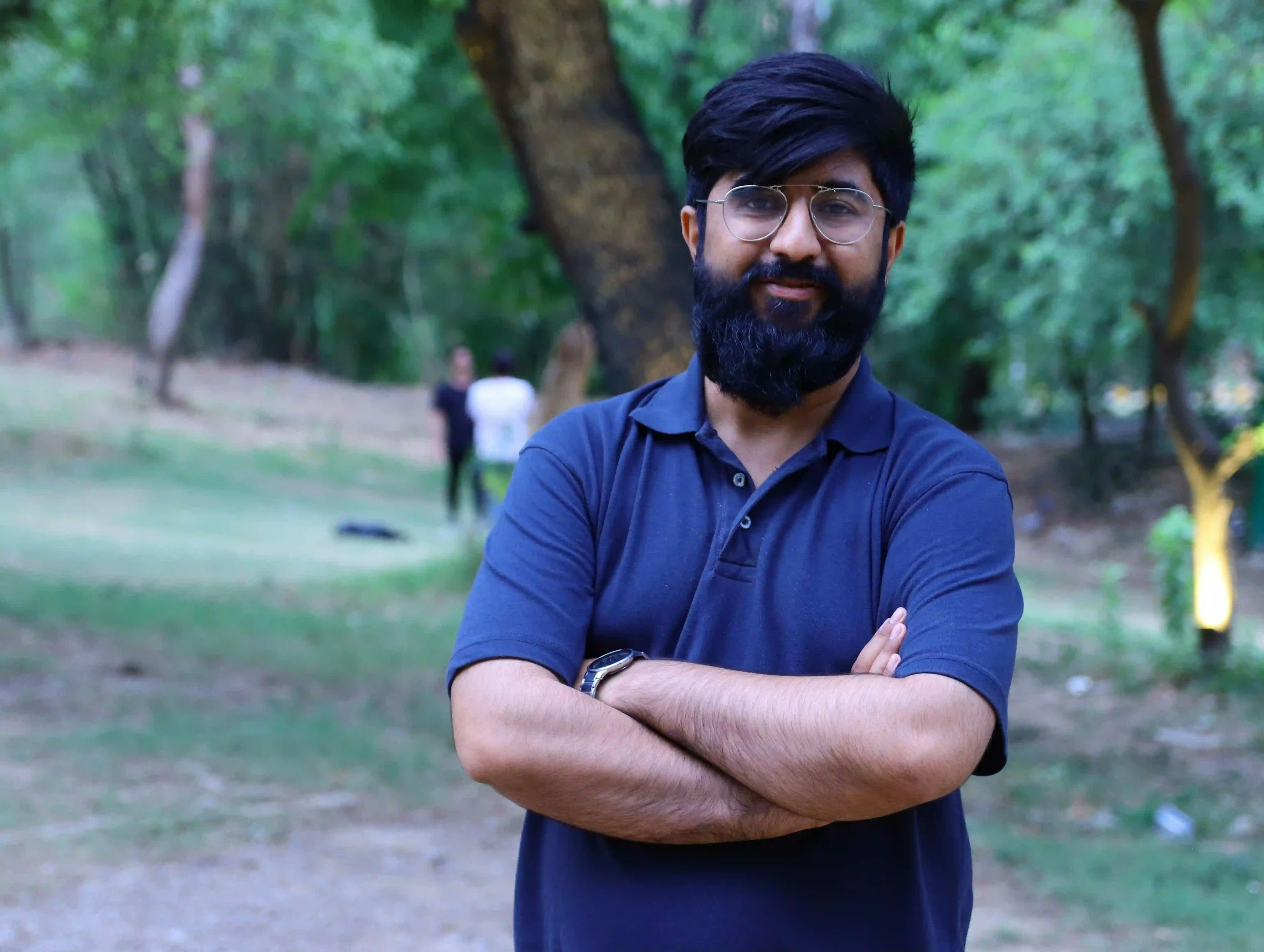Remote Cloud system engineer jobs
We, at Turing, are looking for talented remote Cloud system engineers who will be responsible for managing clients’ cloud-based systems and processes including setting up architectures using cloud providers like AWS, Microsoft Azure, Google Cloud, or others. Get an excellent opportunity to collaborate closely with the best minds while working at top U.S. firms.
Find remote software jobs with hundreds of Turing clients
Job description
Job responsibilities
- Work closely with the engineering team to identify and implement the most optimal cloud-based solutions
- Plan, design and develop cloud-based applications
- Participate in managing cloud environments in accordance with company security guidelines
- Deploy and debug cloud initiatives and stick to the best practices throughout the development lifecycle
- Find and evaluate the potential threats and come up with prospective solutions to address the possible issues
- Build and design web services in the cloud, and implement the set-up of geographically redundant services
- Orchestrate and automate cloud-based platforms throughout the company
Minimum requirements
- Bachelor’s/Master’s degree in Engineering, Computer Science, IT (or equivalent experience)
- At least 3+ years of experience in Cloud Engineer role or related position (rare exceptions for highly skilled developers)
- Certification in AWS solutions architect and Cloud security
- Experience in software development using languages like Java, Python, C++ or Ruby
- Knowledge of web services, API, REST and RPC
- Experience working with OpenStack, Linux/UNIX, Rackspace, Docker and Microsoft Azure
- Strong understanding of networking and internet protocols, including TCP/IP, DNS, SMTP, HTTP and distributed networks
- Expertise in databases including knowledge of SQL and NoSQL, and related data stores such as PostgreSQL
- Knowledge of DevOps and CI/CD
- Prior development experience on C#, .Net framework, PowerShell scripting
- Fluency in English language for effective communication
- Ability to work full-time (40 hours/week) with a 4 hour overlap with US time zones
Preferred skills
- Knowledge of Power Platform, Dynamics 365, Office 365 technologies
- Understanding of Enterprise level architecture and information security
- OpenStack Administrator Certification a plus
- Good debugging and problem-solving skills
- Excellent communication, analytical and technical skills
Interested in this job?
Apply to Turing today.
Why join Turing?
1Elite US Jobs
2Career Growth
3Developer success support
How to become a Turing developer?
Create your profile
Fill in your basic details - Name, location, skills, salary, & experience.
Take our tests and interviews
Solve questions and appear for technical interview.
Receive job offers
Get matched with the best US and Silicon Valley companies.
Start working on your dream job
Once you join Turing, you’ll never have to apply for another job.

How to become a remote Cloud system engineer?
A Cloud System engineer is an IT specialist in charge of all technical elements of cloud computing, including design, planning, management, maintenance, and support. Cloud computing solutions are becoming more popular as businesses around the world transition away from onsite data centers and server rooms. The vast majority of multinational corporations are shifting their business applications and data storage to cloud-based services. The transition to cloud services is the top strategic goal for more than half of those companies' IT teams.
Companies must have highly qualified engineers to manage their cloud usage, which involves application building, resource allocation and maintenance, and successful use of the industry's leading cloud providers, like Amazon Web Services (AWS), Google Cloud, and Microsoft Azure.
What is the scope in Cloud System engineering?
In recent years, the future of cloud computing has evolved considerably. The globe is now inextricably linked thanks to digital technologies. This is one of the primary reasons for the shift in the scope of cloud computing. The number of employment, technology, and research capital required to estimate cloud computing's future reach has also increased. As a result, we've seen several intriguing cloud computing advancements.
Because of the large number of businesses moving business processes to the cloud, cloud system engineer positions have been named one of the most in-demand IT careers. According to a NetEnrich study, 68% of company IT departments are now embracing public cloud infrastructure. Cloud-experienced engineers are in high demand as businesses shift away from on-premise infrastructure architectures and toward a cloud-first approach when updating or establishing new environments.
What are the roles and responsibilities of a Cloud System engineer?
A Cloud System engineer is an IT professional in charge of a variety of technical Cloud Computing duties. Cloud System engineers are classified into three types: Solutions Architects, Cloud Developers, and System Operations Engineers. The activities and responsibilities of a cloud system engineer may differ depending on the categories stated above. Let me go over each of these jobs in greater detail:
- **Architect of Solutions: **These are the individuals who will be involved in infrastructure and application development. As a result, substantial technical knowledge and experience developing distributed applications and systems on the Cloud platform are required. To put it simply, they are in charge of creating blueprints for application designs. Some of their responsibilities include the following:
- Creating and deploying cloud-based applications that are dynamically scalable, available, fault-tolerant, and reliable.
- Choosing the best Cloud services for creating and deploying an app based on the needs
- Cloud Platforms are being used to move complicated, multi-tiered applications.
- Designing and delivering enterprise-wide scalable operations on Cloud Platforms
- Implementing cost-cutting measures
-Cloud Developers: As the name implies, these folks are in charge of coding and application development. They are anticipated to be well-versed in cloud architecture best practices. Cloud developers work on the creation, deployment, and debugging of cloud-based applications. They should be capable of: designing, deploying, and troubleshooting cloud applications They must have at least one high-level programming language expertise
- Writing applications necessitates familiarity with APIs, command-line interfaces, and SDKs.
- Understanding of the Key Features of Cloud Service Providers
- You should be aware of how to manage the application's lifetime.
- Capability to use continuous integration and distribution pipelines to deliver programmes
- To deploy crucial security measures, the ability to code is required.
- You'll need to be able to write, correct, and debug code modules.
- Coding abilities for serverless applications
- Containers should be used in development processes, which you should be aware of.
**System Operations Engineers: ** They are system administrators who take over control of a programme once it has been planned and constructed. They are in charge of overseeing and managing the majority of the activities that take place during the development process. They should be competent to carry out the following duties:
- With relevant experience, worked as a systems administrator in a systems operations capacity.
- Monitoring and auditing systems experience Working knowledge of virtualization technology
- Networking fundamentals are necessary (for example, DNS, TCP/IP, and firewalls).
- Understanding of architectural specifications
- Understanding of how to implement and control data flow to and from a service provider
- Capability to deploy, manage, and run scalable, high-availability, fault-tolerant systems
- The ability to select appropriate services based on compute, data, or security requirements.
- Capability to analyze utilization costs and identify operational cost-cutting strategies
- Offloading on-premises duties to service providers.
How to become a Cloud System engineer?
Cloud System engineer jobs often require the following education, qualifications, and experience:
Education: A bachelor's degree in computer science, engineering, or a related discipline with comparable abilities is required for a career as a Cloud System engineer. Several employers favor a Master of Science degree.
Certifications: In addition to schooling and experience, some businesses desire extra qualifications to indicate technical ability in one or more fields. Certifications for significant providers such as AWS and Microsoft, as well as certifications for skill areas such as cloud security, are among the most popular.
Experience: Most firms choose Cloud System engineers with three to five years of experience with cloud services, including open-source technology, software development, system engineering, scripting languages, and dealing with several cloud providers. Cloud System engineers should also have prior expertise in building or designing cloud-based web services.
Cloud System engineer jobs demand experience with programming languages such as Java, Python, and Ruby. Many companies are searching for Cloud System experts who are familiar with OpenStack, Linux, AWS, Rack space, Google Compute Engine, Microsoft Azure, and Docker. APIs, orchestration, automation, DevOps, and databases, particularly NoSQL, are all important skills to have.
Interested in remote Cloud System engineer jobs?
Become a Turing developer!
Skills required to become a Cloud System engineer
The first step is to begin studying the fundamental skills that will assist you in obtaining a high-paying Cloud System engineer job. Let's go over what you'll need to know.
1. Linux
Cloud System engineers should be familiar with the Linux operating system, which is commonly used in cloud development. Engineers for cloud systems should be familiar with Linux server architecture, maintenance, and administration. Linux is a programmer's dream due to its open source nature, ease of customisation, security, and other benefits. We see Linux being used on a number of cloud platforms because cloud providers are aware of this.
2. Programming
Cloud System engineers should be fluent in several programming languages, including SQL, Java, Python, Ruby, Golang, PHP, and.NET. When it comes to Cloud System engineering skills, the function of developers in the computer industry cannot be overlooked. Apps may be created, deployed, and managed quickly by developers. In cloud computing, this attribute is employed for scalability and strength. As a result, understanding the appropriate programming languages or frameworks may be advantageous.
3. Networking
Cloud System engineers must understand virtual networks and general network management operations. Networking is linked to cloud computing because centralized computing resources are shared for clients via the Cloud. It has started a trend of transferring more network management functions to the cloud, lowering the necessity for customer devices to be connected to the network.
4. DevOps
If you're a software developer or an operations engineer, you're well aware of the challenges that these professionals encounter on a regular basis as they work in a range of environments. DevOps integrates development and operations methodologies into a single package, eliminating work dependencies and bridging the gap between the two groups. Because DevOps is a prominent Cloud System engineering paradigm, employers may benefit from having a practical understanding of DevOps procedures. AWS DevOps, in particular, is in great demand among cloud providers.
5. Containerization
Containers are a logical packaging strategy for applications that allows them to be isolated from the environment in which they operate. This decoupling enables container-based software to be deployed easily and consistently, regardless of whether the target environment is a private data center, public cloud, or even a developer's laptop. Understanding how popular containers such as Kubernetes and Docker work will make your CV stand out not only in the Cloud industry, but also in the software domain as a whole.
6. Virtualization
Cloud engineers should be able to deploy and run application software on virtual machines. Virtualization is essential for enterprises to have access to scalable, fault-tolerant resources.A solid understanding of virtualization or services such as virtual machines, EC2, and Lambda would be a huge step toward Serverless Computing. As a result, it is a high-level Cloud System engineer expertise.
7. Understanding cloud service providers
Understanding what each offers can increase a Cloud System engineer's knowledge and make them more useful to businesses, as technical cloud capabilities and engineering procedures differ amongst service providers.
8. Recovery and security
Cloud security is concerned with the protection of cloud computing's data, applications, and infrastructures. It is comparable to the security of on-premise architectures. However, because everything is moving to the Cloud, it is vital to get a grip on it.
9. Web services and APIs
Cloud System engineers should be knowledgeable with open standards such as XML (Extensible Markup Language), SOAP (Simple Object Access Protocol), WSDL (Web Services Description Language), and UDDI (Universal Description, Discovery, and Integration), as well as how APIs are constructed.
Interested in remote Cloud System engineer jobs?
Become a Turing developer!
How to get a remote Cloud System engineer job?
You must devise an effective job-search strategy while gaining as much practical experience as possible. Consider what you're looking for and how you'll use that information to narrow down your search before you start looking for jobs. When it comes to showing employers that you are job-ready, it's all about getting your hands dirty and putting your skills to use. As a result, continuing to learn and improve is vital. The more open source, volunteer, or freelancing projects you work on, the more you'll have to talk about in an interview.
Turing offers the greatest remote Cloud System engineer jobs, all of which are tailored to your professional goals as a Scala developer. Working with cutting-edge technologies to address complicated technical and business problems will aid in your rapid expansion. Join a network of the world's greatest developers to land a full-time, long-term remote Cloud System engineer position with higher salary and opportunities for advancement.
Why become a Cloud System engineer at Turing?
Elite US jobs
Career growth
Exclusive developer community
Once you join Turing, you’ll never have to apply for another job.
Work from the comfort of your home
Great compensation
How much does Turing pay their Cloud System engineers?
Turing's Cloud System engineers are free to charge whatever they choose. Turing, on the other hand, will propose a pay at which we believe we can offer you a rewarding and long-term opportunity. Our recommendations are based on market research and our perceptions of customer want.
Frequently Asked Questions
Latest posts from Turing
Leadership
Equal Opportunity Policy
Explore remote developer jobs
Based on your skills
- React/Node
- React.js
- Node.js
- AWS
- JavaScript
- Python
- Python/React
- Typescript
- Java
- PostgreSQL
- React Native
- PHP
- PHP/Laravel
- Golang
- Ruby on Rails
- Angular
- Android
- iOS
- AI/ML
- Angular/Node
- Laravel
- MySQL
- ASP .NET
Based on your role
- Full-stack
- Back-end
- Front-end
- DevOps
- Mobile
- Data Engineer
- Business Analyst
- Data Scientist
- ML Scientist
- ML Engineer
Based on your career trajectory
- Software Engineer
- Software Developer
- Senior Engineer
- Software Architect
- Senior Architect
- Tech Lead Manager
- VP of Software Engineering








